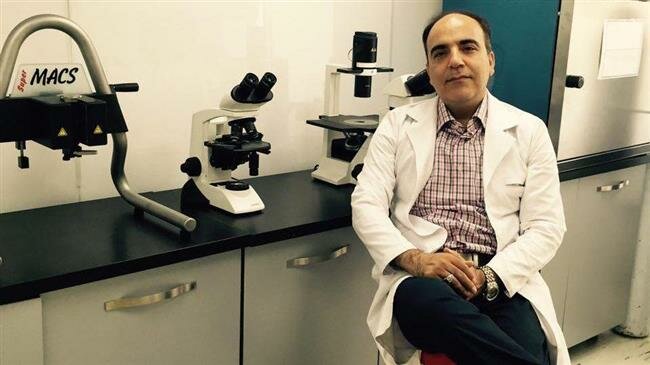Back in October last year, Soleimani, a professor and biomedical researcher at the Tarbiat Modares University (TMU) in Tehran, was arrested by the US Federal Bureau of Investigation (FBI) upon his arrival in the US.
According to his Atlanta attorney, Leonard Franco, he has since been held behind bars in a jail in Atlanta without bond.
Soleimani had been invited by the Mayo Clinic in Minnesota for leading a research program there, but he was secretly indicted by the FBI, which also canceled his research visa. Neither the FBI nor the US prosecutors have so far officially commented on his detention.
BJay Pak, the US attorney in Atlanta, secured Soleimani’s indictment on June 12, 2018, just a month after President Donald Trump withdrew the US from the Iran nuclear deal, and Soleimani had been fully unaware of such an indictment when he flew to the US.
Franco and Page Pate, another Atlanta lawyer, said that they had been puzzled by the federal government’s decision to prosecute a renowned Iranian professor and two of his former students – Mahboobe Ghaedi and Maryam Jazayeri – for purported trade sanction violations over eight vials of human growth hormone.
Franco said that Soleimani’s treatment by federal authorities, the revocation of his visa and the decision to detain him without bond doesn’t square with Soleimani’s international reputation as a scholar, professor, and doctor widely known in the field of stem cell research and regenerative medicine. Soleimani has no criminal history anywhere in the world, he added.
The hormone, which is a form of synthetic protein, was seized from Jazayeri in 2016 by customs authorities in Atlanta when she was heading to Iran to give it to professor Soleimani for research purposes. Jazayeri had received the hormone from Ghaedi.
The seizure occurred at a time when Washington was still a signatory to the 2015 nuclear deal, officially known as the Joint Comprehensive Plan of Action (JCPOA), and anti-Iran sanctions had not been re-imposed yet.
The growth hormone is not banned in the US or Iran and was being used “exclusively for medical research”, which is still considered largely exempt from US sanctions, Franco said.
However, Ghaedi and Jazayeri faced similar federal charges for attempting to supply Soleimani with the growth hormone.
Ghaedi is a permanent American resident and an assistant professor at Yale University’s School of Medicine. She is free on a $250,000 bond. Jazayeri is a naturalized US citizen and Kentucky resident and has conducted medical research at the University of Louisville. She is currently free on a $200,000 bond.
“I truly don’t understand it,” Franco said of the government’s decision to prosecute, adding that it appeared to be “some type of policy argument.”Pate, who represents Jazayeri, said his client was “completely confused by all this.”
Motions to dismiss the charges are pending in federal court in Atlanta in front of US District Judge Eleanor Ross. However, Federal prosecutors in Atlanta have not yet responded to the motions.
According to TMU authorities, hearing this case has been adjourned for at least three times since October and his family and the TMU have so far paid $70,000 to his lawyers to prove his innocence, but all to no avail.
Almost 50 Iranian nationals are currently imprisoned in the United States under various pretexts, mainly bypassing the US sanctions.
